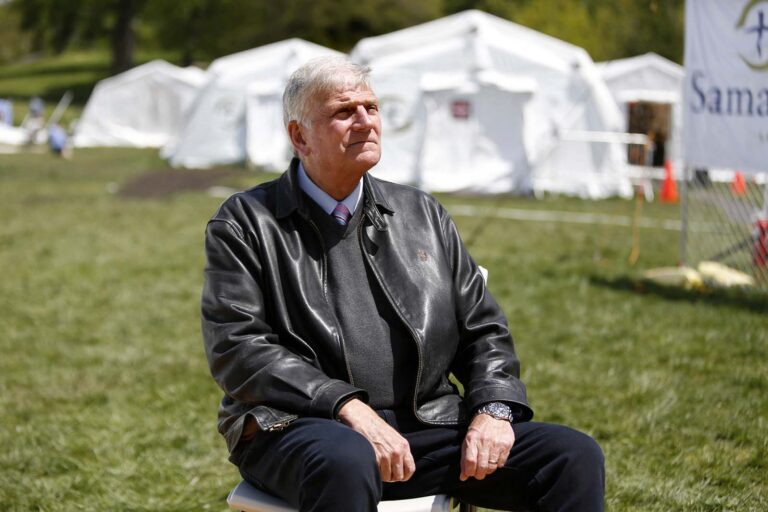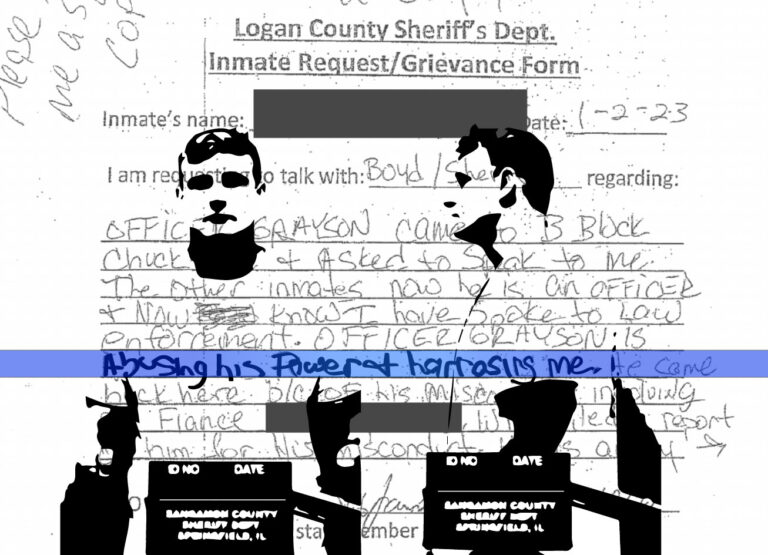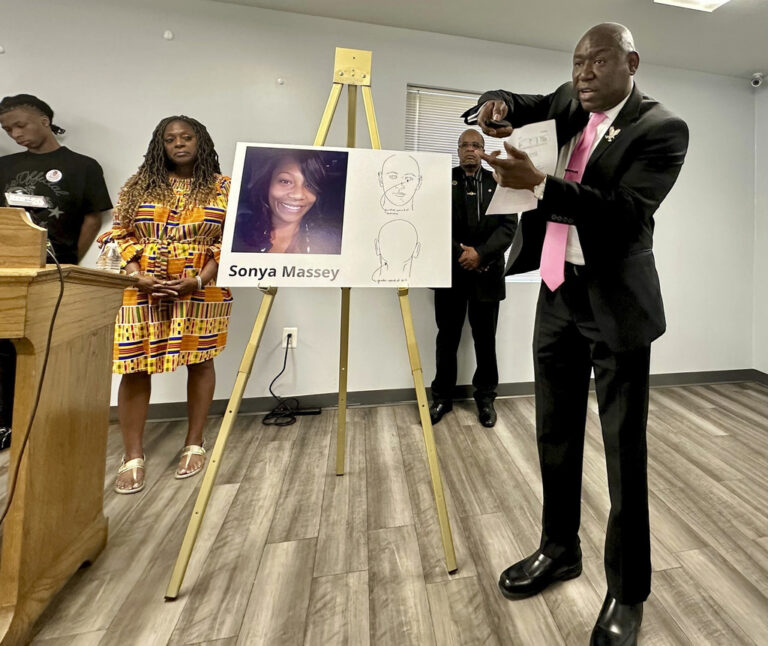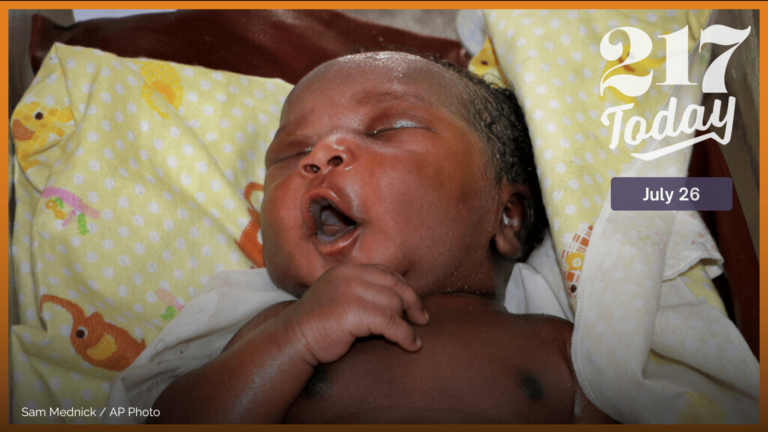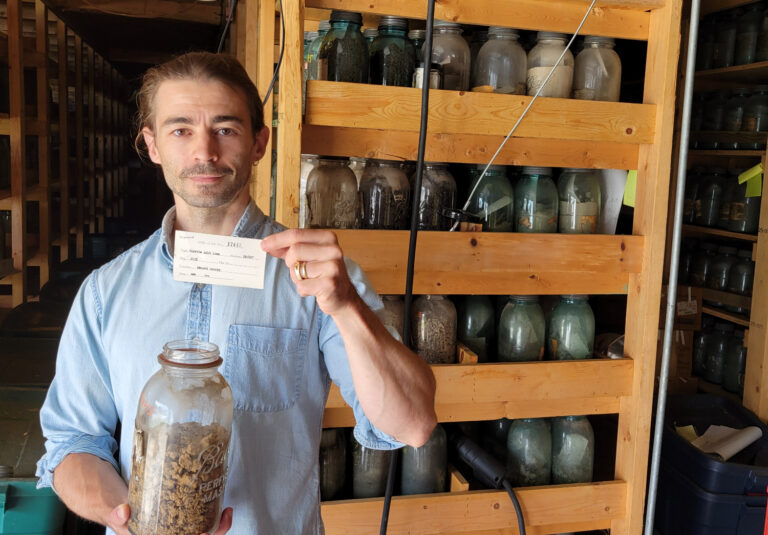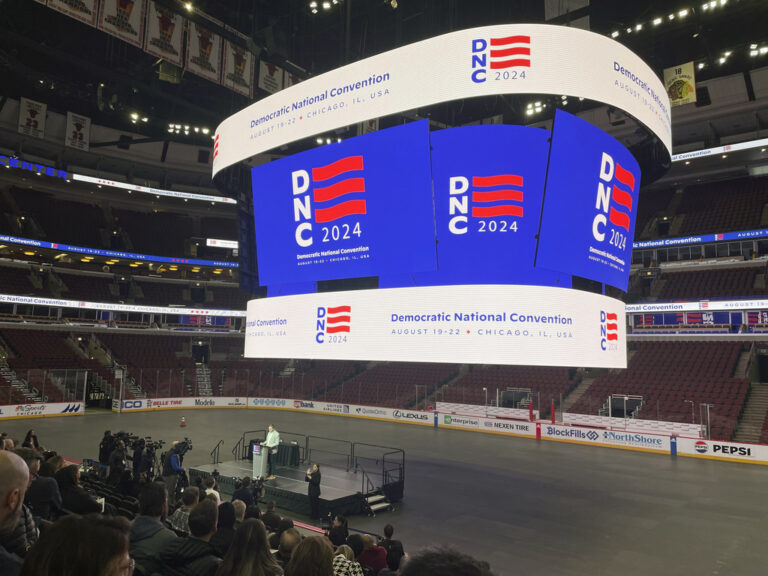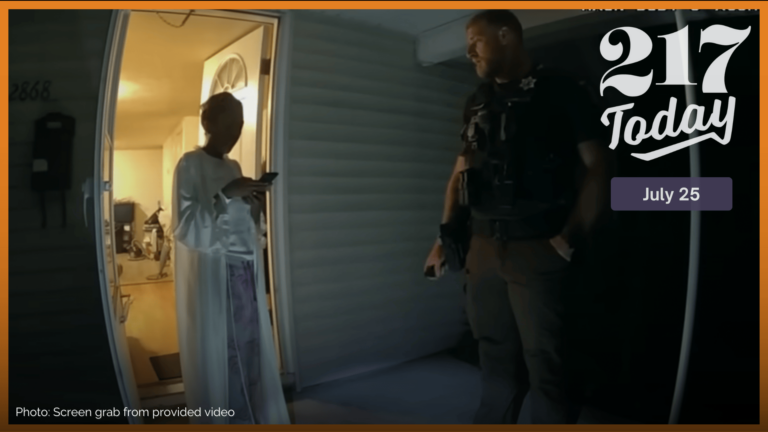CHARLESTON — One of the things we’ve been looking at during our look at “Who’s in Charge of the News” is how information and misinformation spread, including on the COVID-19 pandemic.
When the COVID-19 vaccine first began rolling out, white evangelicals — and Republicans — were among the groups most likely to say they were not interested in getting vaccinated.
Now, as vaccine mandates have become more common — so has the pushback, based on religion and politics.
To learn more about the political and religious factors underlying these trends, Illinois Newsroom’s Brian Moline spoke with Ryan Burge. He’s an assistant professor of political science at Eastern Illinois University — and a pastor in the American Baptist Church.
Listen to this interview here.
Burge says his research shows that political affiliation has become a bigger part of the identity of white evangelicals than their faith.
This conversation has been lightly edited for time and clarity.

Ryan Burge: So, what that means is that religion is not as important in the life of the average American, I think, as a lot of pastors would want you to believe, or even as many social scientists believed 10 or 15 years ago.
Now, it’s sort of like politics has become a type of religion and created a religious worldview for people. So now, what we’re seeing more and more is people are actually picking what church they go to, based on the political affiliations of the members of that church and the kind of messaging they hear at that church. They’re much more likely to change their church than they are to change their politics. And it’s pretty easy just to uproot, and go to a new church down the road, if it’s more conservative or more liberal, and you like that, you’ll just uproot yourself and go to a new place. And pastors have sort of lost their “influencer” status, I guess to use a 21st century word, in the lives of many Americans.
I’ve had many pastors tell me, ‘Listen, I get them for 30 minutes once a week, if they pay attention, and a lot of them don’t. They get Tucker Carlson or Rachel Maddow for an hour, every night, five nights a week, you know, for 52 weeks a year. So, there’s no way that I can have the same impact on their worldview, as cable news can have on their worldview and social media can have on their worldview.’ So, for many pastors, they’ve sort of given up the fight for politics and have walked away from it entirely.
Brian Moline: When COVID-19 vaccines first began rolling out, polls found that both Republicans and white evangelical Christians were among the groups most likely to say they would not be getting vaccinated. And I’m curious if that surprised you at all?
RB: No, because we know that white evangelicals are typically Republicans. So, we know that the pandemic was, it became partisan, right? Everything about the pandemic became partisan. It wasn’t just about public health, it was about control. Big government versus small government, individual freedom versus community health.
But the other thing is, when you think about the lockdowns, what they did was they told churches, they can’t operate, they can’t meet together. And so for a lot of Christians, that throws off all kinds of red flags, because they’re always worried that government is going to try to usurp the power of religion in American life. That’s something that evangelicals talk about all the time, even 5, 10, 20 years ago, it was the government trying to intrude upon your liberty to worship freely. And so when it happened, and when churches closed down. A lot of people said, ‘This is the playbook. This is the government trying to take your rights away and take your freedom of religion away. This is all being orchestrated to make the church weaker and make the government stronger. So you should resist that. Because this is the moment that we’ve been preparing for, this the moment you’ve been worrying about, and it’s actually come to pass.’
So, it didn’t take on a public health tone for a lot of Republicans, white evangelical Republicans, it took on a conspiratorial tone, that the government’s really coming to try to take your right to worship away from you. Don’t let them have it. Fight back. So, I think a lot of that was all tied up in this conspiratorial thinking and this persecution complex that a lot of white evangelicals have, and the government with the mandate and the lockdowns basically played into that mentality.
BM: Interesting. You know, as time has gone along, vaccine hesitancy has declined among faith groups. Overall, the decline has been less pronounced among white evangelicals compared to some other religious affiliations. And I’m curious, have you seen any evidence to suggest that appeals to a person’s faith, for example, calling on Christians to get the vaccine out of love for their neighbors? Is there any evidence you’ve seen those types of appeals are working?
RB: There’s some evidence on the margin that they do help. But on the margin, I mean, increasing vaccination rates by one, two, three percent. There’s not any sort of, you know, silver bullet you can use when it comes to religion, to get people over that hump and take them from absolutely not to actually getting both shots of a vaccine.
More often than not, for a lot of these faith groups, it’s logistic stuff, if helped with. Things like having a vaccination clinic in the church or providing transportation to a vaccination clinic in the community is what’s helping a lot of these people get vaccinated. So, it’s not necessarily a theological or spiritual appeal. It’s a logistical challenge they’re helping them overcome.
White evangelical pastors are in this terrible position, because many of them are pro-vaccine and want to get vaccinated and want their congregation to get vaccinated. But what they know is that there’s a significant portion of their congregation that will not under any circumstances, get the vaccine. And if the pastor pushes that, they’re going to get blowback. They’re going to get, you know, they might lose their job over something like that, because pastors in the evangelical tradition serve at the pleasure of their congregation. If they make them mad, they can be fired without any legal recourse.
So, when you know that your congregation is divided on an issue, you are less likely to speak out on that issue because you’re in such a precarious position, being a leader of this congregation. So, what you do is you remain silent, and when you remain silent, something else is going to fill that void in the lives of your congregation, and like we talked about, I think a lot of times social media and cable news, fill that gap, give you information that might not always be the most Christian perspective on things, but also might not be the most accurate, you know, scientifically accurate information.
But in a lot of ways, evangelical pastors are caught between a rock and a hard place. Speak up and make people mad, but maybe increase vaccination rates. Be quiet and keep your job, but also maybe do a few more funerals for people who got COVID-19 and died from it, because they did not get the vaccination because you did not encourage them to do so. That’s a hard thing to figure out what to do.
BM: There are some evangelical leaders like Franklin Graham, for example, son of the late Billy Graham, who have openly encouraged Christians to get the vaccine. Is there a way for evangelical pastors to do that with without alienating a sizable portion of their congregation?
RB: I think the best approach would be to say, ‘I got vaccinated and here’s why.’ Not telling people what they should do, right? Not forcing people or mandating people. I don’t think houses of worship should get in the business of mandating vaccines. I think it’s just a bad idea for a whole bunch of reasons.
But I think you need to speak into that void being left by the silence that they’ve had for the last six months, right? They’ve not been talking about vaccines for six months. What you can say is, ‘I got vaccinated and here’s why. I’m immunocompromised. My parents who are immunocompromised. my son or daughter had cancer and I’m worried about them. I don’t want to bury members of my congregation dying from COVID 19 unnecessarily,’ Right? You can start talking about the science in the most objective and neutral way.
But I also think messaging, maybe not necessarily talking about COVID-19 and the vaccine specifically but talking about what it means to be a good citizen, a neighbor, a good part of your community, what it means to love people you don’t know, and what it means to be a Christian in a world where people are looking for kindness. Right?
And so whenever I talk to my congregation, as a pastor, I would say ‘you should wear a mask.’ Am I convinced that it will make sure that you don’t get COVID? No, but what it does is it’s an act of kindness for people that you come in contact with, saying ‘I care about you even though I don’t know you, and I care about your well-being even though I don’t know about your well-being.’

